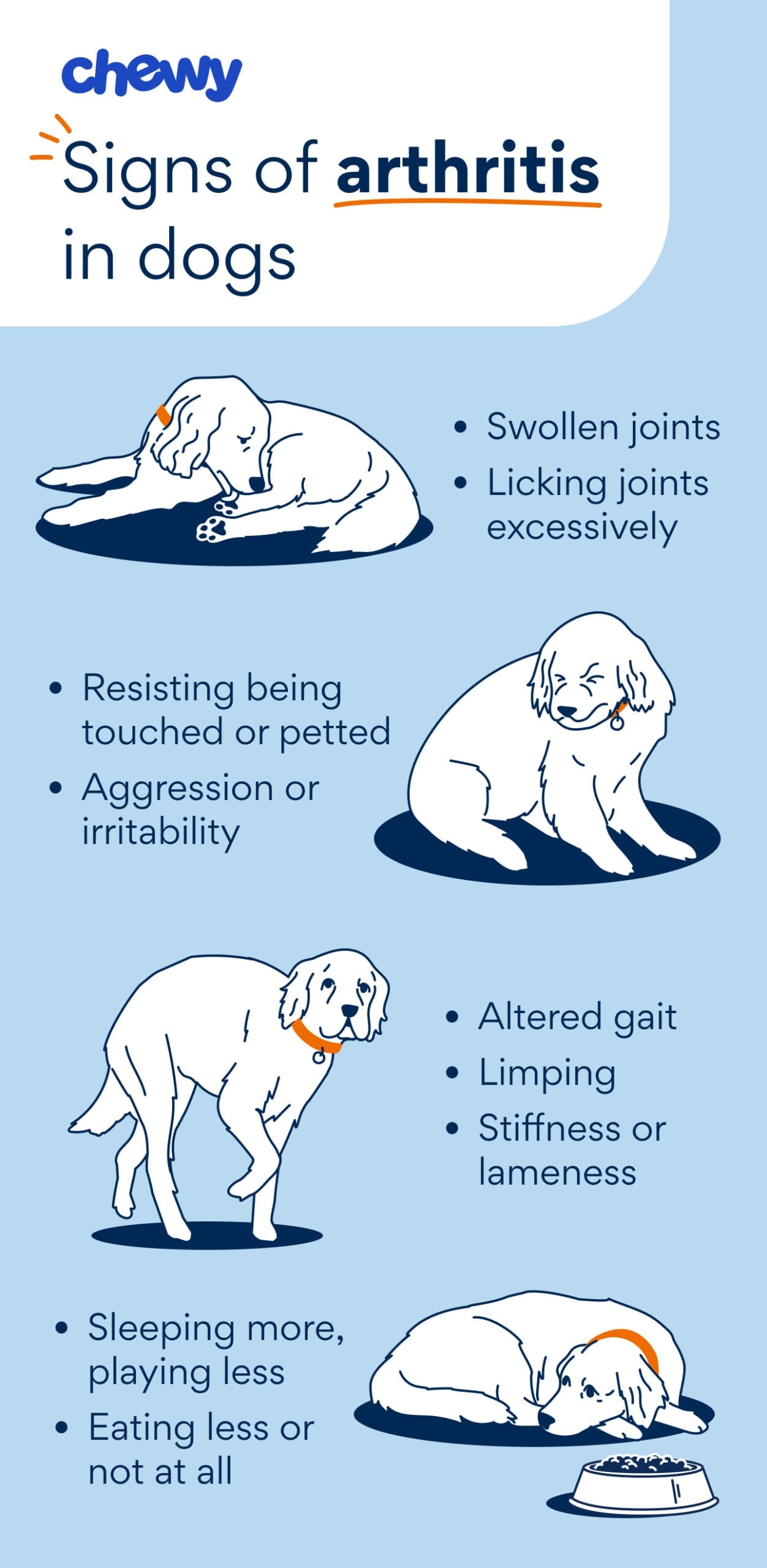Arthritis is a prevalent condition in dogs, particularly as they age, causing joint inflammation, swelling, and tenderness. This discomfort can stem from various factors including genetics, aging, infections, underlying diseases, injuries, or overuse. If your canine companion is showing signs of arthritis, understanding and implementing the right management strategies can significantly improve their quality of life.
Comprehensive Treatment Approaches for Canine Arthritis
A successful approach to managing arthritis in dogs involves a multimodal strategy, combining different medications, joint supplements, and lifestyle adjustments. It’s crucial to collaborate with your veterinarian to develop a tailored treatment plan for your pet.
Weight Management for Joint Health
Maintaining a healthy weight is paramount in alleviating joint pain for dogs. Excess weight places additional pressure on the joints, exacerbating pain and discomfort. By controlling your dog’s weight, you can significantly ease their discomfort as they get older. Your veterinarian can help you determine your pet’s ideal weight and create a long-term weight management strategy.
The Role of Exercise and Physical Therapy
Moderate, daily exercise, alongside physical therapy and massage, can be highly beneficial for dogs suffering from joint pain. Opt for short, consistent walks – around 10 to 15 minutes, three to four times a day. Avoiding high-impact activities like running or jumping is essential to prevent increasing stress on their joints. Consulting with a certified small animal physical rehabilitation practitioner can introduce your dog to therapeutic exercises such as passive stretching, range of motion exercises, and underwater treadmill sessions. These therapies aim to improve mobility, reduce pain and inflammation, enhance balance, and strengthen muscles.
Medical Interventions for Arthritis Pain
While there is no cure for arthritis in dogs, several medications can help manage joint pain and inflammation.
- Librela: This is a monthly injection administered by your veterinarian, utilizing anti-nerve growth factor (NGF) monoclonal antibody therapy to treat osteoarthritis-associated pain.
- Corticosteroids: In some instances, steroids may be prescribed for short or long-term use to combat inflammation and pain. It’s vital to never use steroids concurrently with NSAIDs, as this combination can lead to severe side effects like stomach ulcers. Always inform your veterinarian about all medications your pet is currently taking.
Beneficial Dog Arthritis Supplements
When selecting joint supplements for your dog, prioritize those containing:
- Methylsulfonylmethane (MSM)
- Glucosamine hydrochloride
- Long-chain omega-3 fatty acids (EPA and DHA)
- Eicosatetraenoic acid (ETA)
- Chondroitin sulfate
- Green-lipped mussel
These ingredients are recognized for their ability to support joint health. For breeds prone to arthritis, starting joint supplements as early as 8 weeks of age is recommended. Potential side effects like gastrointestinal upset can occur with supplements or dietary additives, so consulting your vet before administration is advised.
Specialized Dog Food for Arthritis
Beyond general large-breed diets that may include omegas or glucosamine, veterinary prescription diets are specifically formulated to support joint mobility.
Exploring Alternative Therapies
Complementary therapies can be a valuable addition to your dog’s primary arthritis treatment plan, helping to further alleviate joint pain. These may include:
- Acupuncture: The insertion of fine needles into specific body points has shown clinical evidence in reducing chronic joint pain when used alongside multimodal therapy.
- Laser Therapy: Low-level lasers deliver light energy to joints, increasing oxygen and blood flow to reduce inflammation and pain.
- Shockwave Therapy: This treatment utilizes high-intensity sound waves to decrease inflammation and manage arthritis.
- Electrical Stimulation: Including neuromuscular stimulation to strengthen muscles and transcutaneous electrical nerve stimulation (TENS) for pain relief.
Essential Lifestyle Modifications at Home
Simple adjustments to your home environment can significantly reduce your dog’s pain and anxiety.
- Non-slip Surfaces: Dogs with arthritis may fear slippery floors like hardwood or tile due to limited mobility and the risk of falling. Implementing non-slip mats, rugs, and carpets can help them navigate their home more confidently. Placing these rugs on stairs and near furniture can also reduce joint impact.
- Orthopedic Dog Beds: Low-profile orthopedic dog beds can ease joint pain and make it easier for your dog to stand up. Ensure resting and sitting areas have thick, non-slip bedding to prevent injury.
Ultimately, the most effective arthritis protocol for your dog will likely involve a combination of medications, therapies, and supportive aids. The primary goal is to ensure your furry companion enjoys a comfortable and happy life. Discuss the best combination of treatments with your veterinarian to manage your dog’s arthritis effectively.

